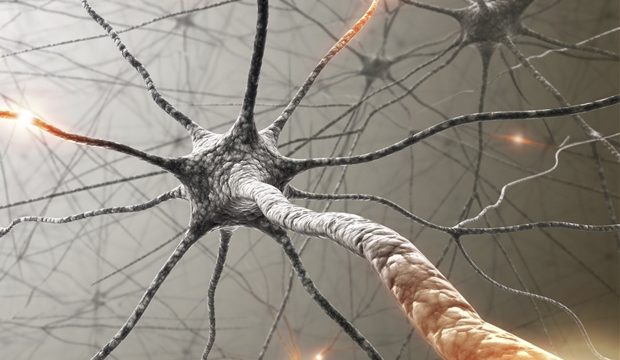New research offers clues about the biology of cells in the spinal cord that die off in amyotrophic lateral sclerosis (ALS) and other neurodegenerative diseases. A team of researchers supported by the National Institutes of Health found evidence linking motor neurons' large cell size and supporting structure with the genes that underlie their vulnerability to degeneration in ALS. Findings appeared in Neuron.
The study resulted in a catalog or "atlas" characterizing the diverse community of cell types within the human spinal cord. By examining gene expression at the single-cell level, the researchers identified dozens of cell types in the spinal cord and analyzed their molecular profiles. They demonstrated the usefulness of the atlas by looking closely at motor neurons, which provide voluntary movement and motor control. Motor neurons, which degenerate and die in ALS, are large cells with one long extension called an axon-up to a meter long-that conducts signals from the spinal cord to the muscle fiber.
The team found that motor neurons are distinguished by a set of genes that may enable the large size of the motor neuron cell body and lengthy axon, but also underlie their vulnerability to degeneration. Their molecular profile was defined by genes involved in cytoskeletal structure, which gives the cell shape and organizes the structures within; neurofilament genes related to cell size; and genes linked to the onset of ALS. Additional experiments showed that ALS-related genes are also enriched in motor neurons in mice. Taken together, the study gives insight into ALS and demonstrates the utility of the spinal cell atlas to study disease and possible interventions.
National Institutes of Health
Yadav, A., et al. (2023) A cellular taxonomy of the adult human spinal cord. Neuron. doi.org/10.1016/j.neuron.2023.01.007.
Posted in: Cell Biology | Medical Research News | Medical Condition News
Tags: Amyotrophic Lateral Sclerosis, Brain, Cell, Gene, Gene Expression, Genes, Health and Human Services, Medical Research, Motor Neurons, Muscle, Nervous System, Neurodegenerative Diseases, Neurological Disease, Neuron, Neurons, pH, Research, Sclerosis, Stroke
Source: Read Full Article
